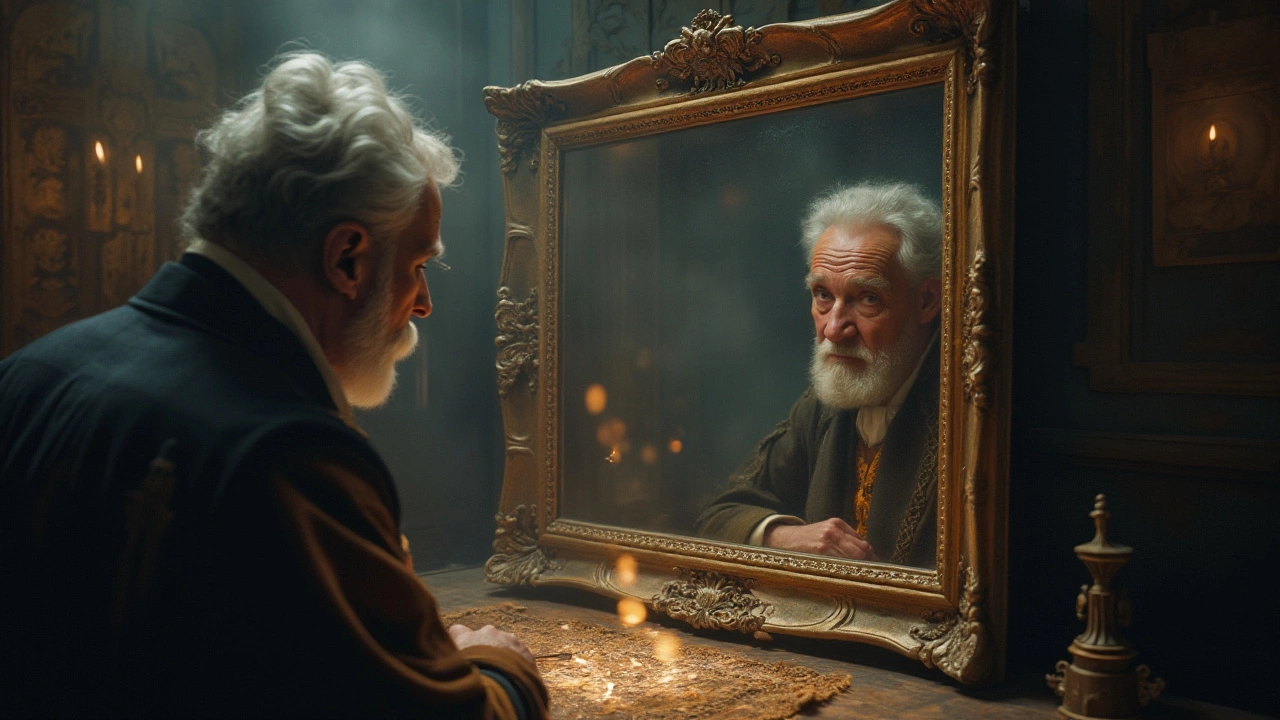Mirrors & Spirituality: Using Reflection to Boost Mindfulness at Home
Ever notice how a simple mirror can change the feel of a room in an instant? It does more than just show your reflection – it can shift energy, broaden your sense of space, and even support a quiet mind. If you’re curious about mixing décor with a dash of spirituality, this guide shows you how to use mirrors as tools for calm and clarity.
Why Mirrors Matter in Spiritual Spaces
Mirrors amplify light, so they naturally brighten corners that feel heavy or closed off. In many traditions, a bright corner equals a more open flow of chi or positive vibes. When you place a mirror opposite a window, you double the daylight, which can lift your mood and make meditation feel more spacious.
Beyond light, mirrors give you a literal “second look.” During a mindfulness practice, you can glance at the glass and remind yourself to stay present. It’s a visual cue that says, “Watch the now, not the past.” That tiny habit can keep wandering thoughts at bay.
Choosing the Right Mirror for Your Practice
Not every mirror works the same. A plain, true‑glass mirror provides a clean, undistorted view – perfect if you want a clear mental picture. Cheap “decorative” mirrors often use tinted or warped glass, which can scatter light unevenly and make the space feel cluttered.
If you’re looking for a focal point, a larger wall mirror or a round decorative piece can become a meditation anchor. Position it where you can see it while sitting on a cushion or at your altar. For grooming or makeup, a magnifying mirror (3x–5x) helps you focus on details without straining, keeping the body relaxed for a smoother meditation flow.
Cost matters, too. True mirrors cost more because the glass is thicker and the silver backing is applied in a controlled environment. The price gap isn’t just a brand mark‑up; it’s about durability and the exactness of the reflection. If you plan to keep a mirror for years, investing in a solid piece pays off.
When you’re budgeting, look for a mid‑range option with a clear, flat surface. Avoid mirrors with heavy frames that block light – a thin metal or wood frame works best for keeping the energy fluid.
Once you’ve chosen your mirror, think about placement. In feng shui, mirrors should not face the front door directly, as they can push good energy away. Instead, aim them toward a beautiful view, a calming piece of art, or a plant. This way, the mirror reflects what you want to invite into the room.
Try a small “reflection corner”: place a shallow table, a candle, and a mirror angled to catch the candle’s flame. Light bouncing off the glass feels like a tiny, moving mantra, especially during evening meditation.
Finally, keep the surface clean. Dust or fingerprints blur the visual cue and can make the space feel stagnant. A quick wipe with a soft cloth once a week keeps the mirror “alive” and ready to support your practice.
By treating mirrors as more than décor – as tools for light, focus, and energy – you turn ordinary rooms into mindful sanctuaries. Experiment with size, placement, and style, and notice how the simple act of reflecting can help you reflect inward, too.
-

The Spiritual Significance of Mirrors: Unveiling Hidden Meanings
Mirrors have long fascinated humanity, serving not only as tools for reflection but also as symbols loaded with spiritual meanings. They are thought to be gateways to the soul, reflecting both inner truth and hidden emotions. Many cultures believe mirrors can hold power, from showing glimpses of the future to warding off negative energy. This article explores the multifaceted spiritual significance of mirrors and how they can be used for personal growth and protection.
